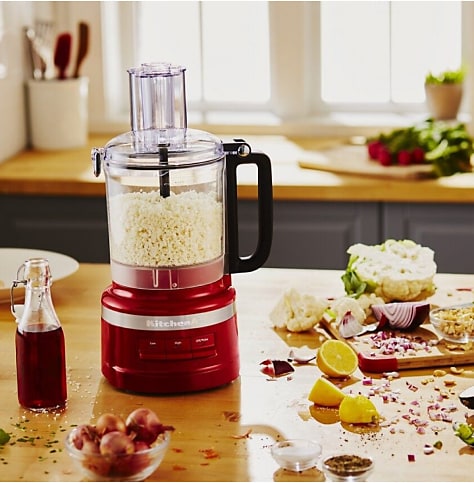10 years of experience as a food machinery equipment manufacturer
10 years of experience as a food machinery equipment manufacturer
In the realm of kitchen gadgets, two appliances often find themselves under comparison: the multi-functional meat puree chopper and mixer, and the classic blender. Both promise efficiency but cater to distinctly different culinary needs. Understanding their core strengths and limitations helps determine which tool genuinely delivers optimal results for specific tasks.

Specialized for solid and semi-solid ingredients, these compact devices typically feature:
The ergonomic design prioritizes stability during operation, while dishwasher-safe components simplify cleanup. Crucially, the blades rotate horizontally with sharp, serrated edges that shred fibrous tissues efficiently, unlike traditional blenders.
Blenders excel in liquid-based applications, utilizing vertically aligned blades that create powerful vortexes. Key features include:
However, their design struggles with dense mixtures. Processing large quantities of meat often causes blades to jam or cavitate. The narrow base also impedes even chopping, leading to uneven textures unless significant liquid is added.
For raw meats like beef or poultry, chopper-mixers demonstrate clear superiority. Tests reveal they achieve finer, restaurant-grade mince textures in 45 seconds, while blenders produce uneven chunks even after prolonged pulsing. The chopper’s horizontal blade rotation evenly shreds connective tissues without requiring added broth or oil.
Both appliances handle soft-cooked vegetables competently, but differences emerge with dense ingredients. When creating baby food purees involving meats and root vegetables, chopper-mixers yield consistently smooth results. Blenders often leave fibrous strands intact unless processing time doubles, risking overheating.
Multi-functional units tackle thick mixtures effortlessly, mixing cookie dough or falafel blends without stalling. Blenders, however, frequently trap dense mixtures below the blades, creating frustrating “dead zones” requiring manual scraping.
The meat chopper-mixer shines in:
Conversely, blenders remain unmatched for:
Noise levels and cleanup processes are comparable across both types. Counter space slightly favors chopper-mixers due to smaller footprints. Price points vary, but entry-level choppers often cost less than high-performance blenders with comparable power ratings.

Neither appliance universally “wins”—their effectiveness depends entirely on intended use. For meat-focused preparations, vegetable-heavy dense purees, or textured batters, the specialized mechanics of multi-functional chopper-mixers deliver noticeably superior results. However, for liquid-dominated recipes requiring velvety emulsions, traditional blenders maintain their dominance. Households frequently preparing both types of dishes may benefit from owning both tools to leverage their distinct advantages.
